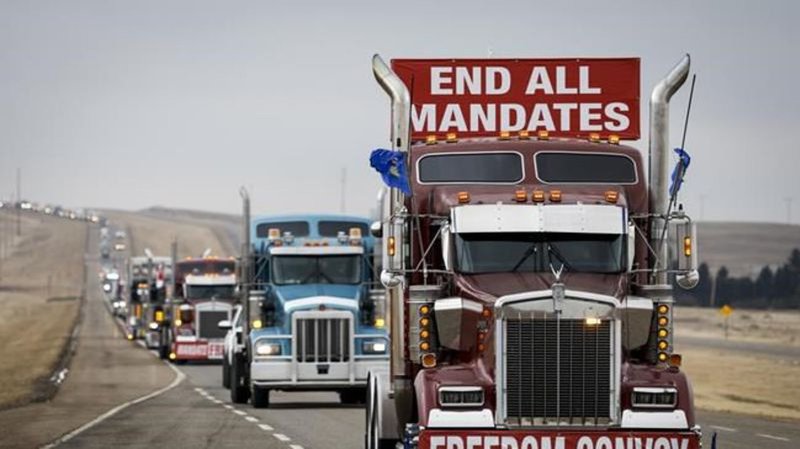
Look West: Criminal anthropologist says Alberta at heart of unrest, protests
CALGARY — A criminal anthropologist suggests looking to the West to find the heart of protests and blockades that gripped the nation for more than a month.
Alberta appears to have been the epicentre of unrest that started with truckers over cross-border vaccine mandates, but quickly attracted other groups with their own agendas. Most prominent were demands to lift all pandemic public health measures, complaints about the federal Liberal government and rallying cries for freedom.
Two people arrested for leading the noisy three-week standoff in downtown Ottawa call Alberta home. A third is from Saskatchewan.
There are 13 people with alleged violent motives facing serious charges in relation to the southern Alberta border blockade at Coutts. Four are accused of conspiracy to commit murder of RCMP officers.


